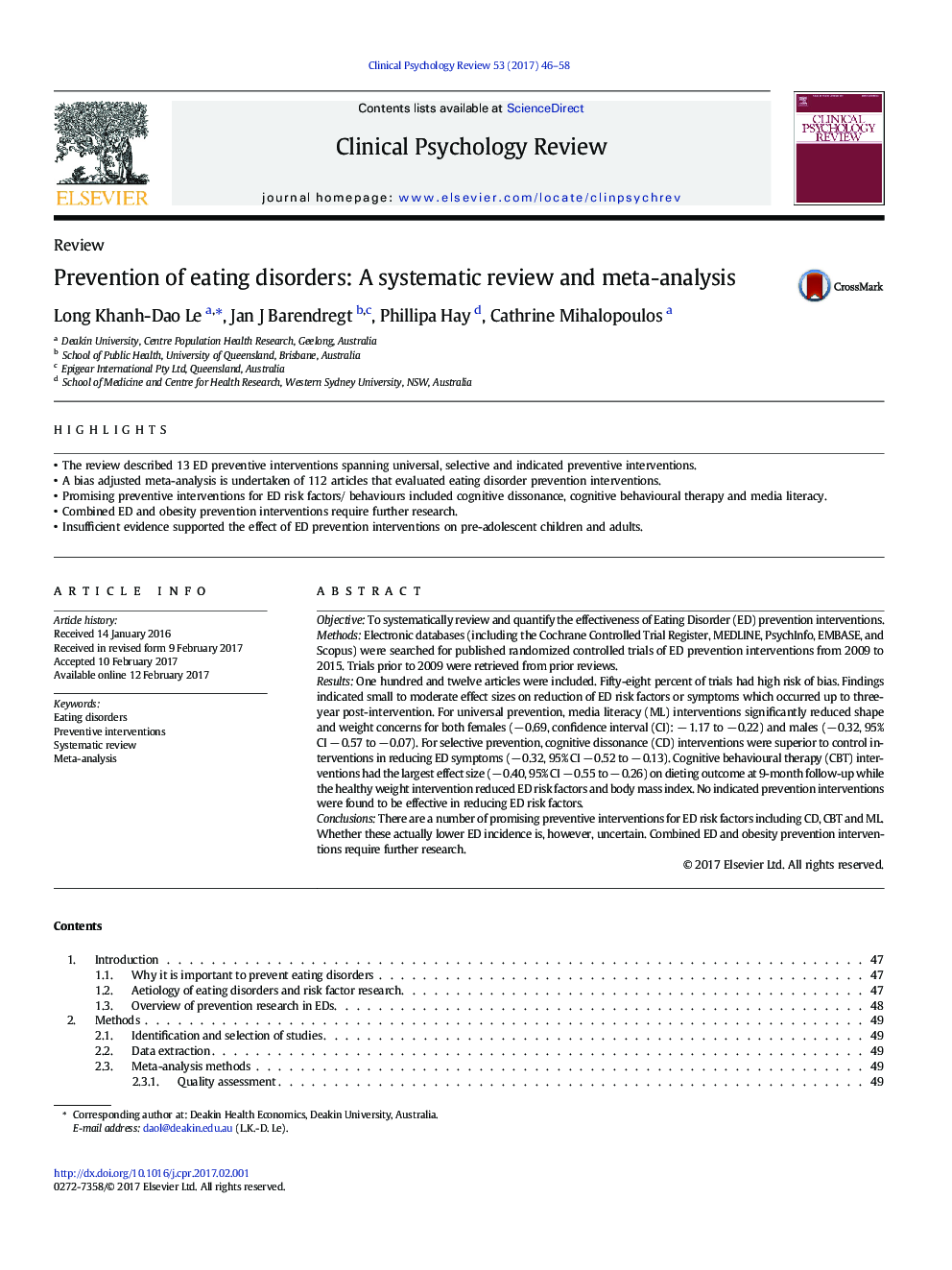| کد مقاله | کد نشریه | سال انتشار | مقاله انگلیسی | نسخه تمام متن |
|---|---|---|---|---|
| 5038514 | 1472838 | 2017 | 13 صفحه PDF | دانلود رایگان |
- The review described 13 ED preventive interventions spanning universal, selective and indicated preventive interventions.
- A bias adjusted meta-analysis is undertaken of 112 articles that evaluated eating disorder prevention interventions.
- Promising preventive interventions for ED risk factors/ behaviours included cognitive dissonance, cognitive behavioural therapy and media literacy.
- Combined ED and obesity prevention interventions require further research.
- Insufficient evidence supported the effect of ED prevention interventions on pre-adolescent children and adults.
ObjectiveTo systematically review and quantify the effectiveness of Eating Disorder (ED) prevention interventions.MethodsElectronic databases (including the Cochrane Controlled Trial Register, MEDLINE, PsychInfo, EMBASE, and Scopus) were searched for published randomized controlled trials of ED prevention interventions from 2009 to 2015. Trials prior to 2009 were retrieved from prior reviews.ResultsOne hundred and twelve articles were included. Fifty-eight percent of trials had high risk of bias. Findings indicated small to moderate effect sizes on reduction of ED risk factors or symptoms which occurred up to three-year post-intervention. For universal prevention, media literacy (ML) interventions significantly reduced shape and weight concerns for both females (â 0.69, confidence interval (CI): â 1.17 to â 0.22) and males (â 0.32, 95% CI â 0.57 to â 0.07). For selective prevention, cognitive dissonance (CD) interventions were superior to control interventions in reducing ED symptoms (â 0.32, 95% CI â 0.52 to â 0.13). Cognitive behavioural therapy (CBT) interventions had the largest effect size (â 0.40, 95% CI â 0.55 to â 0.26) on dieting outcome at 9-month follow-up while the healthy weight intervention reduced ED risk factors and body mass index. No indicated prevention interventions were found to be effective in reducing ED risk factors.ConclusionsThere are a number of promising preventive interventions for ED risk factors including CD, CBT and ML. Whether these actually lower ED incidence is, however, uncertain. Combined ED and obesity prevention interventions require further research.
Journal: Clinical Psychology Review - Volume 53, April 2017, Pages 46-58
